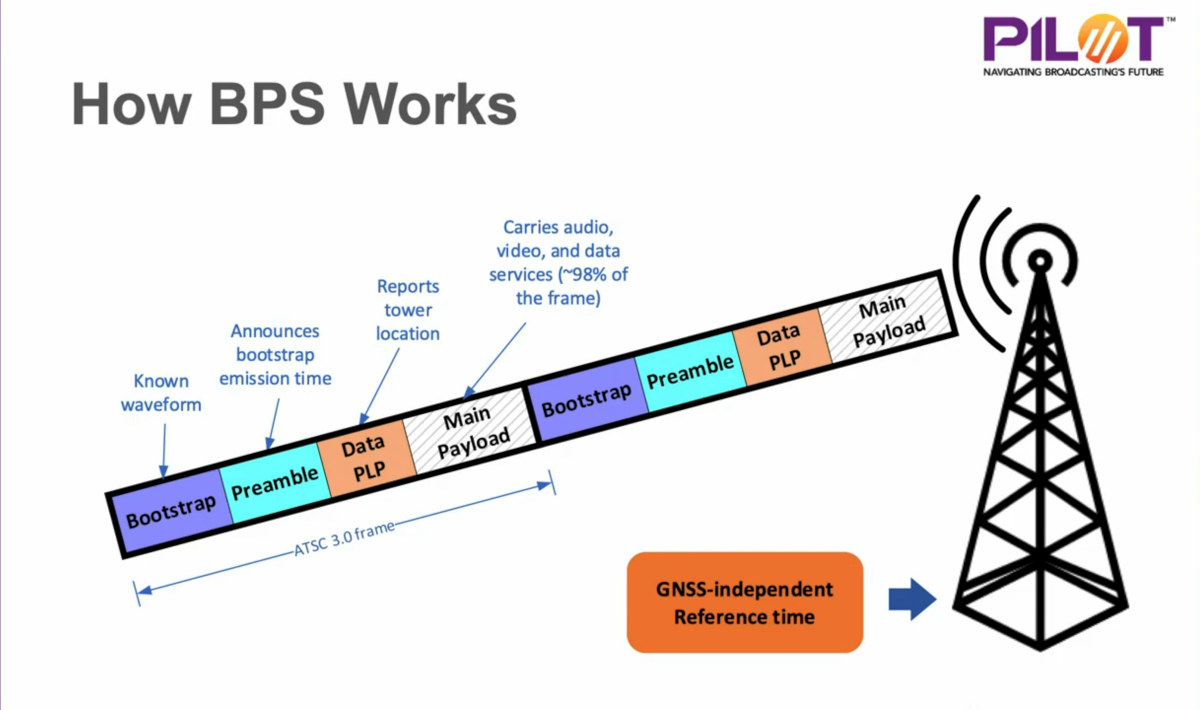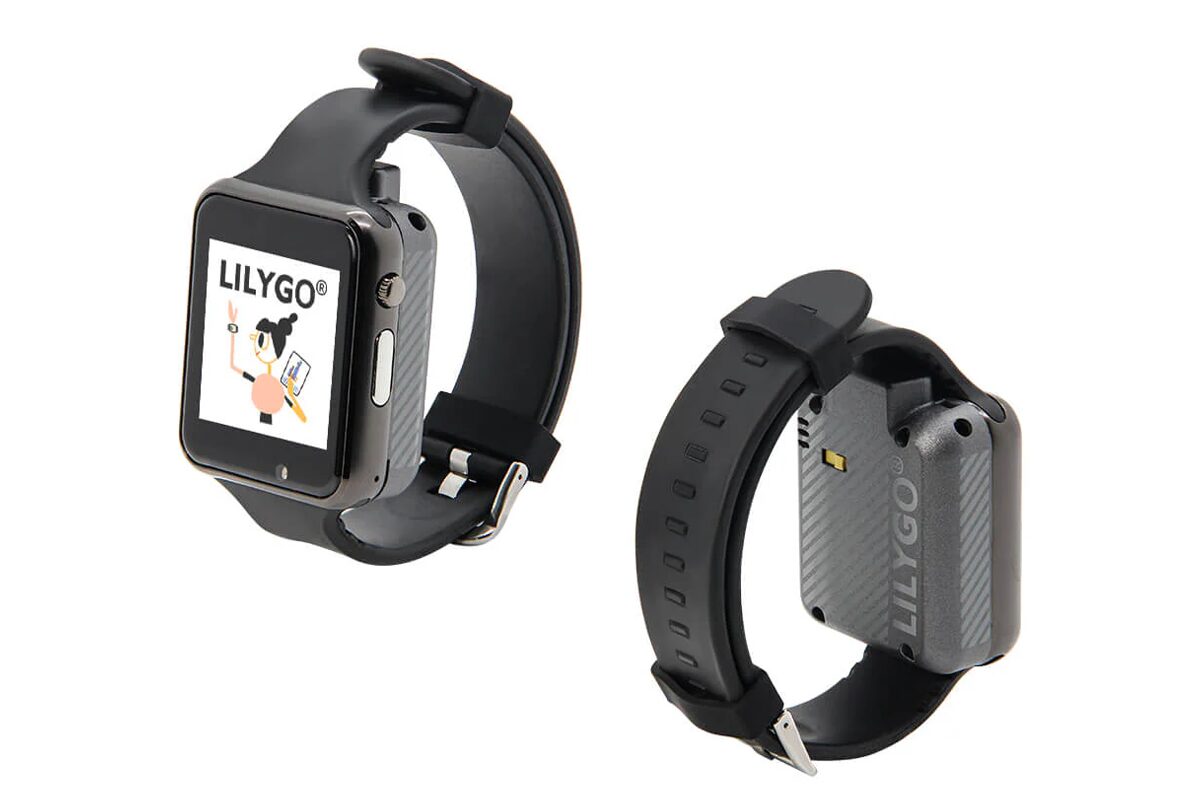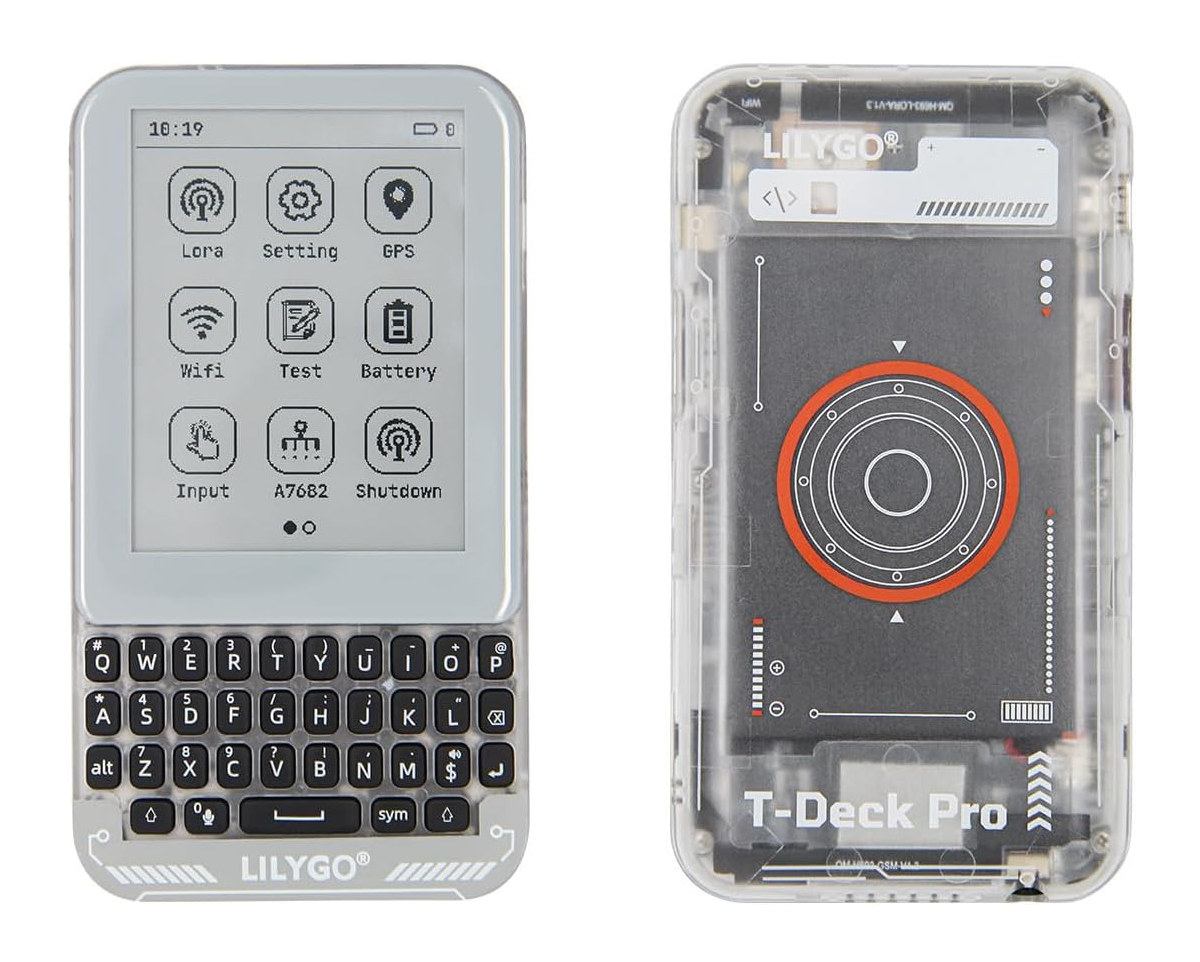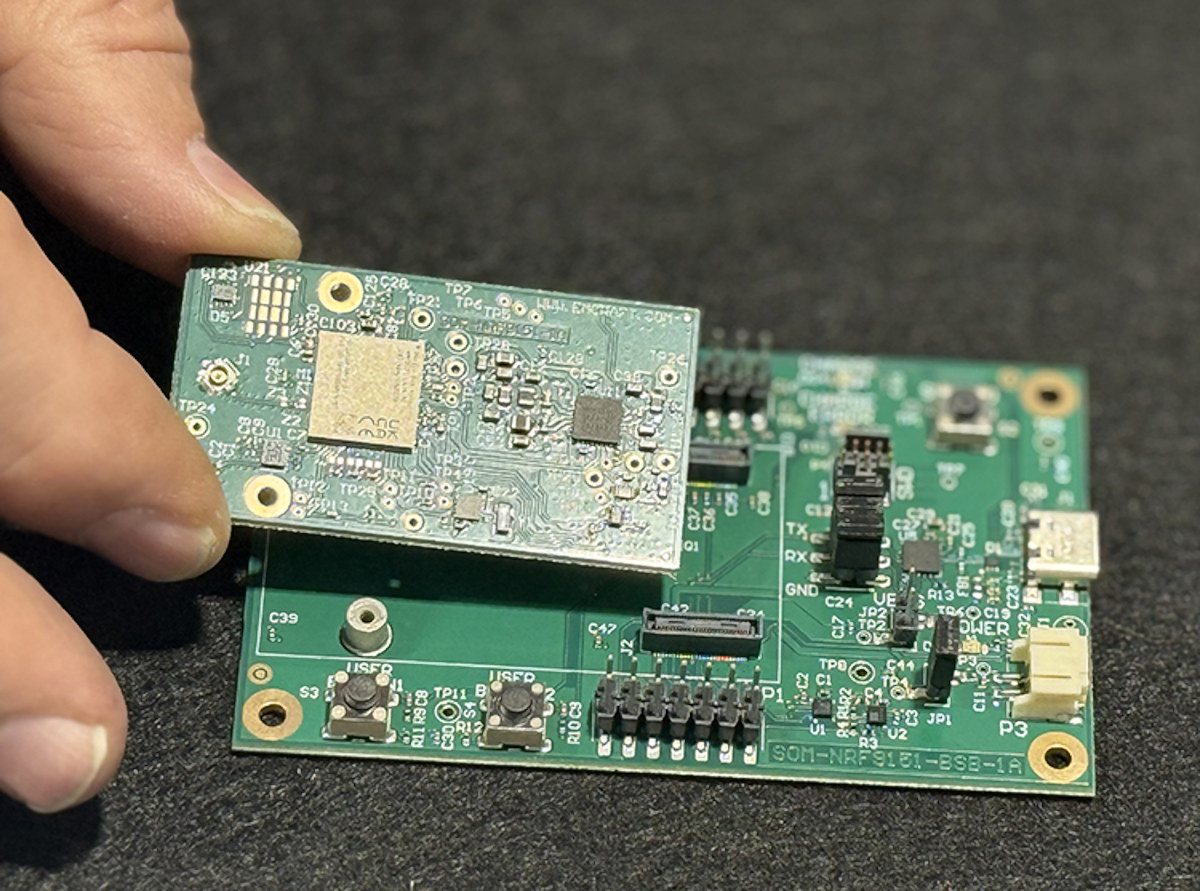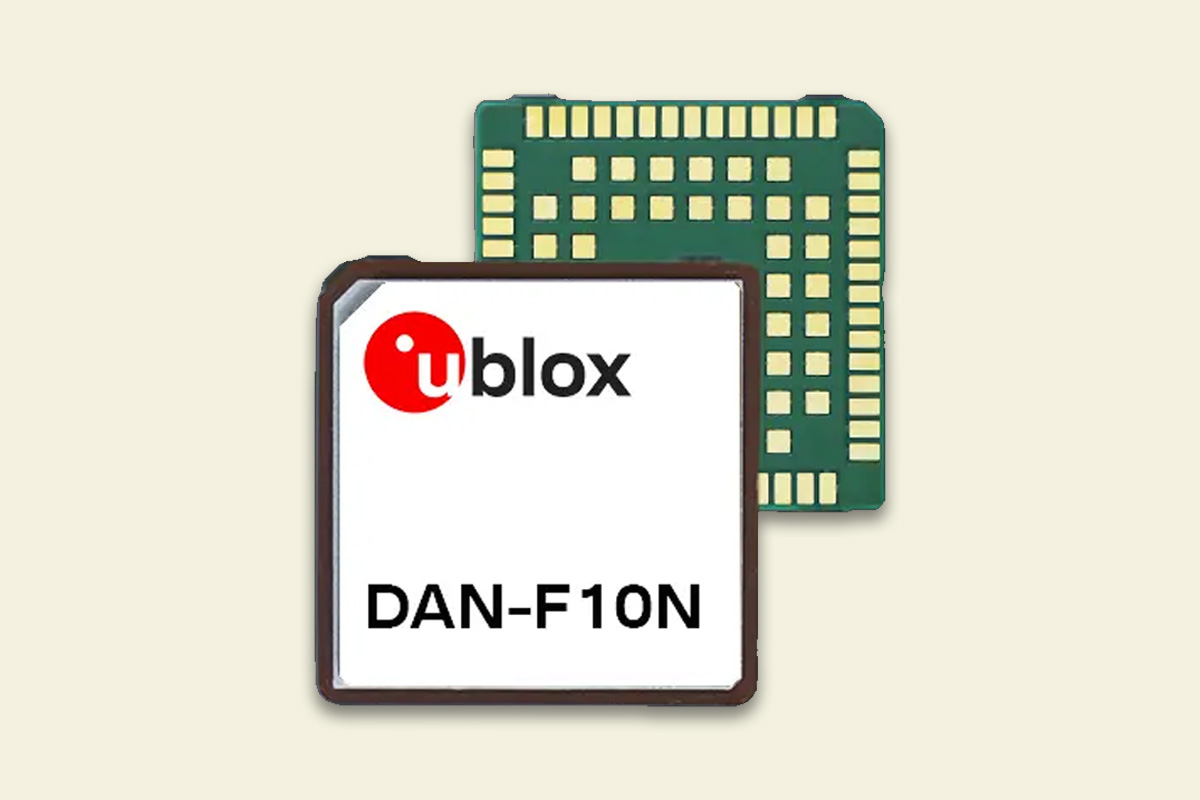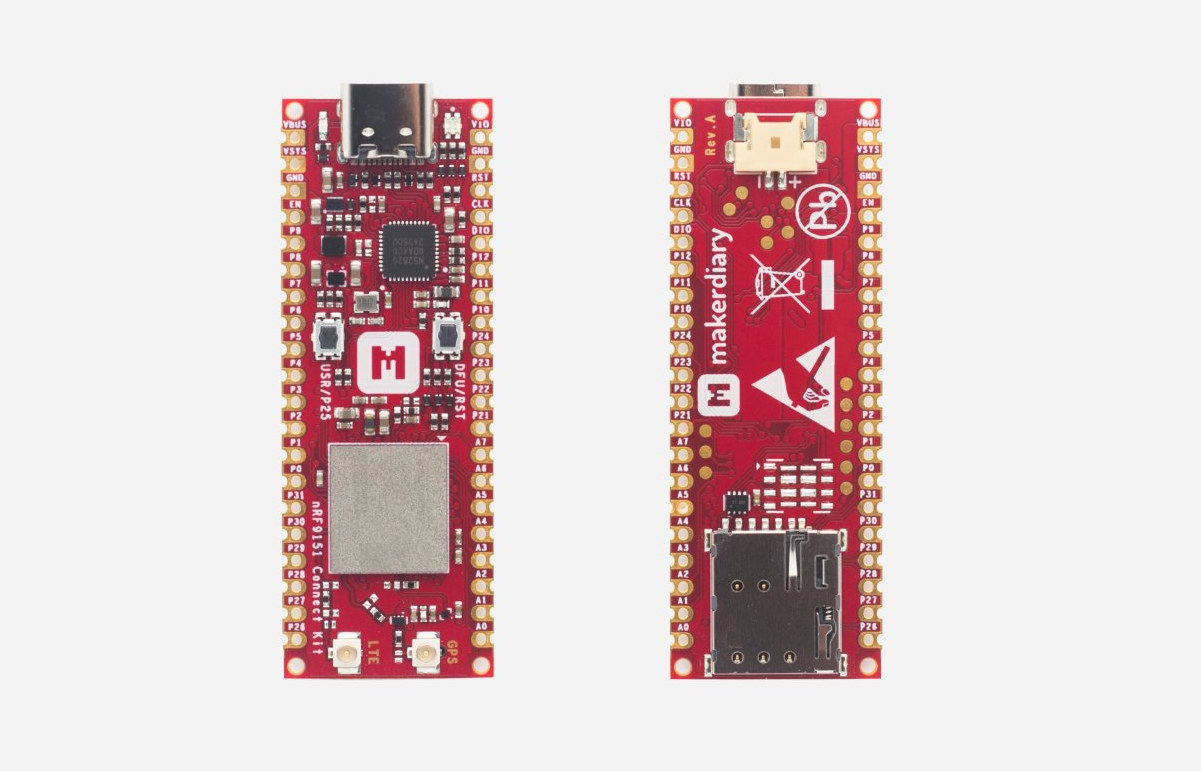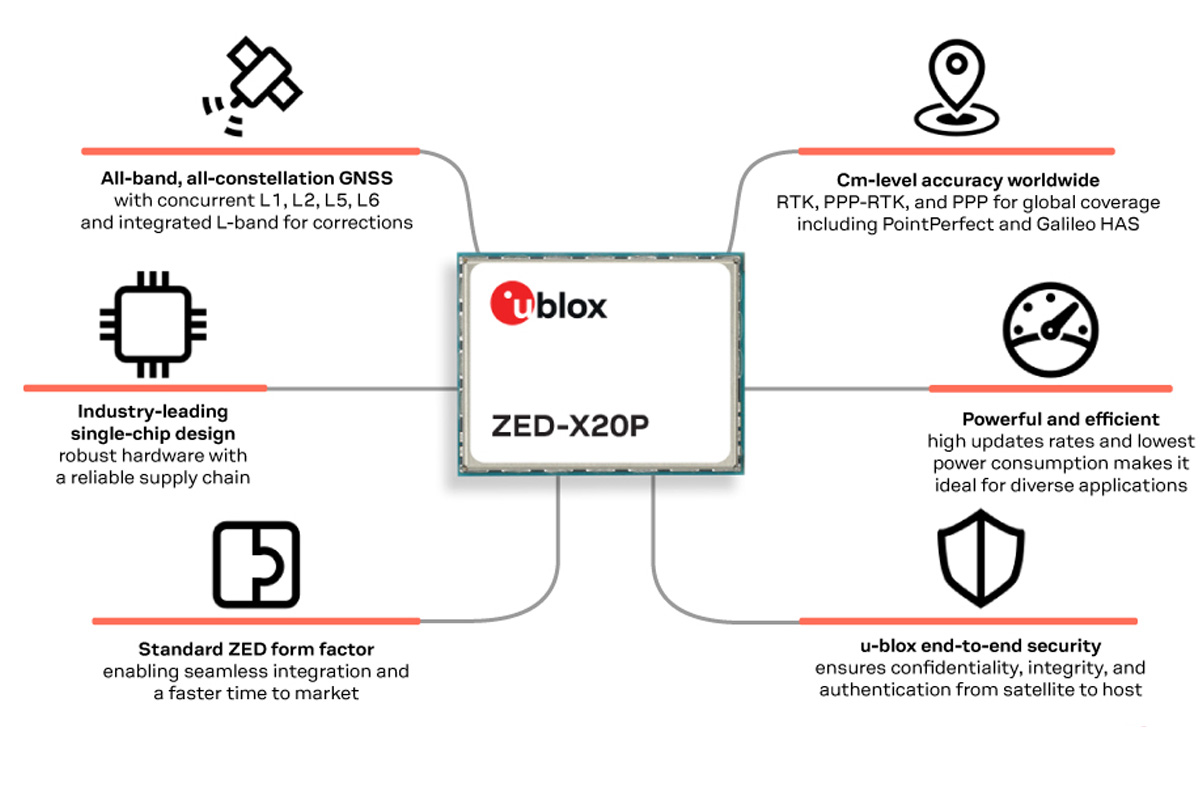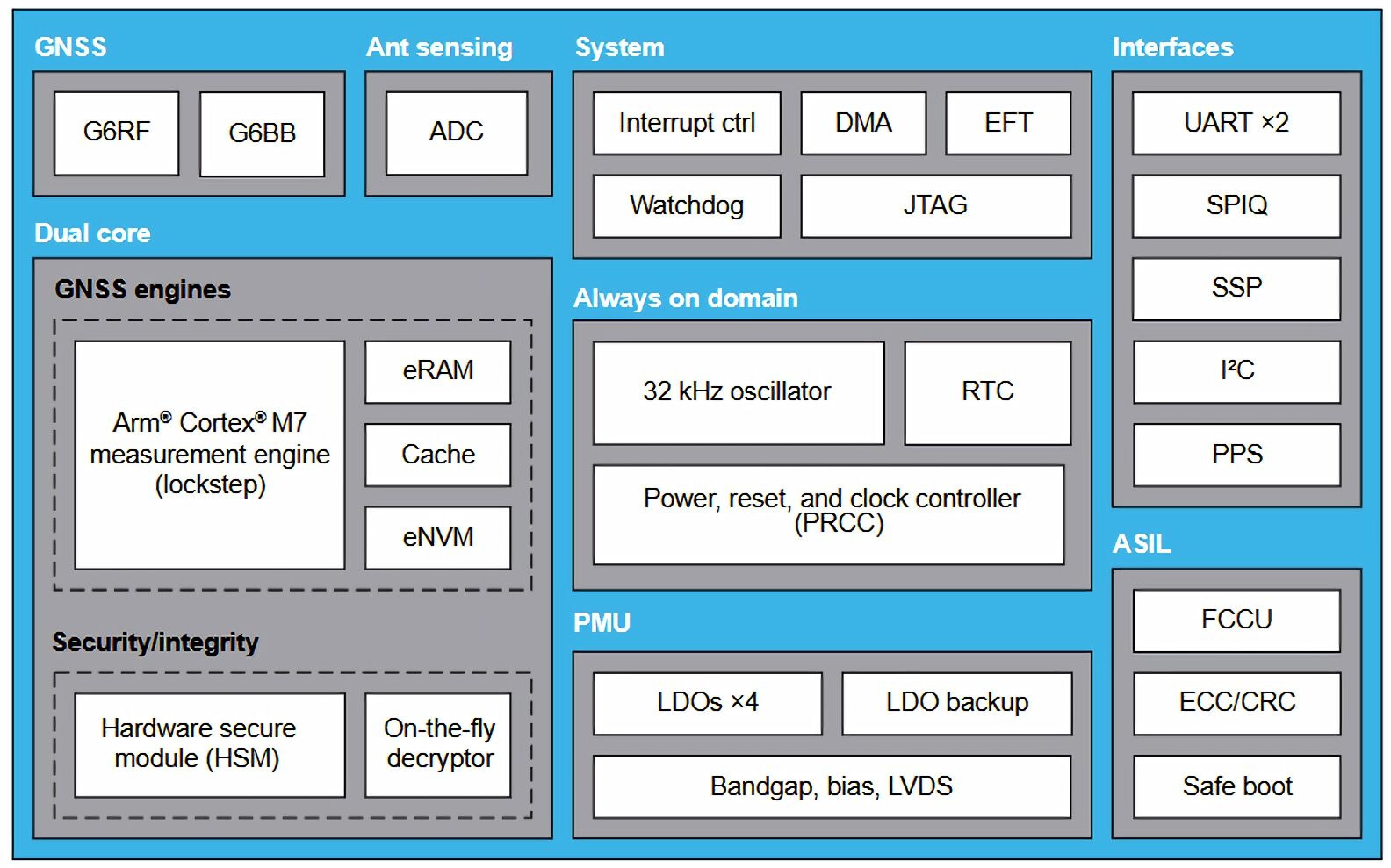Broadcast Positioning System (BPS) is an alternative to GPS designed for timing and positioning over ATSC 3.0 digital TV signals, and mainly designed as a backup solution for national security. GPS is critical in providing not only location data, but also timing data for critical infrastructure such as power grid, telecommunication networks, and so on. However, GPS signals can be spoofed, and/or satellites could potentially be damaged or even taken down. That’s where BPS comes in as an alternative with a much broader network of base stations, and both GPS and BPS signals can be compared, meaning it can be used to detect spoofing as well. It works by adding a preamble with timing data and a Data PLP (Physical Layer Pipe) with tower information and location. One tower is enough for timing data, and positioning will also be possible with four towers within range. Time accuracy is 100ns (95% […]
LILYGO T-Watch S3 Plus smartwatch gets GPS and 940mAh battery
LILYGO has recently introduced the T-Watch S3 Plus, an ESP32-S3 smartwatch which can be considered an upgrade from the previous generation T-Watch S3, adding a u-blox MIA-M10Q GPS and a larger 940mAh LiPo battery for extended battery life. The T-Watch S3 Plus smartwatch still supports Wi-Fi, Bluetooth LE, and LoRa connectivity, and integrates a 1.54-inch 16-bit full-color TFT LCD display with capacitive touch and a wide-viewing angle. The smartwatch also features an infrared (IR) transmitter that can be used for remote control or proximity detection. T-Watch S3 Plus specifications Wireless MCU – Espressif Systems ESP32-S3 CPU – Dual-Core 32-bit Tensilica LX7 @ up to 240 MHz with vector instructions for AI/ML acceleration Memory – 512KB SRAM, 8MB PSRAM Storage – 16MB flash, 384KB ROM Wireless – Wi-Fi 4 and Bluetooth 5 LE/Mesh Display – 1.54-inch 16-bit full color TFT LCD display with 240×240 resolution, capacitive touch; ST7789V SPI controller Audio – […]
LILYGO T-Deck Pro – An ESP32-S3 LoRa messenger with e-paper touch display, keyboard, and 4G LTE or audio codec option
LILYGO T-Deck Pro is a LoRa messenger based on an ESP32-S3 WiFi 4 and Bluetooth 5.x SoC, and offered with a 3.1-inch e-paper display with touchscreen, a Blackberry-like QWERTY keyboard, a GPS module, speaker, microphone, and a 3.5mm audio, as well as IMU and light sensors. It builds upon the T-Deck Plus design, but replacing the 2.8-inch IPS display with a 3.1-inch e-paper display allows for a slimmer design and should offer longer battery life despite the smaller 1,400 mAh battery used in the new model. Two versions of the T-Deck Pro are available: one with a Simcom 4G LTE modem and a cheaper one with a PCM5102A audio codec. LILYGO T-Deck Pro specifications: SoC – ESP32-S3FN16R8 CPU – Dual-core Tensilica LX7 microcontroller @ up to 240 MHz 2.4 GHz 802.11n WiFi 4 and Bluetooth 5.0 LE connectivity Memory – 8MB PSRAM Storage – 16MB SPI flash Storage – MicroSD card […]
emCraft SOM-NRF9151 – A Nordic Semi nRF9151 System-on-Module with LTE-M, NB-IoT, DECT NR+, and GNSS
Better known for its Linux and uCLinux-powered system-on-modules, emCraft has just launched the SOM-NRF9151 system-on-module powered by a Nordic Semi nRF9151 Arm Cortex-M33 SiP (System-in-Package) with LTE-M, NB-IoT, and DECT NR+ connectivity, and GNSS functionality. The SoM also features a 16MB SPI flash, an nPMIC1300 for power management, a Nano SIM card slot, and a footprint for an eSIM. I/Os and power signals are exposed through two 50-pin board-to-board connectors, and the company provides a starter kit with a baseboard for evaluation. emCraft SOM-NRF9151 specifications: SiP – Nordic Semi nRF9151 CPU – Arm Cortex-M33 @ 64 MHz Memory – 256 KB SRAM Storage – 1 MB flash Wireless – LTE-M, NB-IoT, and DECT NR+ modem with GNSS 700-2200 MHz LTE bands: B1-B5, B8, B12, B13, B17-B20, B25, B26, B28, B65, B66, B85 Power Class 5 20 dBm Power Class 3 23 dBm 1.9GHz NR+ band support Certified for global operation […]
u-blox DAN-F10N – The world’s smallest dual-band (L1/L5) GNSS module with an integrated patch antenna fits in a 4cm2 package
u-blox has recently announced the world’s smallest L1, L5 dual-band GNSS module with an integrated patch antenna for precise meter-level positioning in applications such as asset tracking, telematics, industrial automation, consumer UAVs, and sports trackers. The module features a compact 20x20x8mm dual-band patch antenna with a unique packaging technology, enabling surface mounting for automated manufacturing and simplified integration. Its SAW-LNA-SAW RF architecture and an LTE B13 notch filter in the L1 RF path enhance out-of-band jamming immunity, ensuring smooth operation near cellular modems. The module includes internal flash memory for firmware upgrades and supports an antenna switch function for operation with an external active GNSS antenna. DAN-F10N GNSS module specifications: Storage – Internal Flash for firmware GNSS receiver u-blox F10 engine GPS: L1 C/A, L5 QZSS: L1C/A, L1S, L1Sb, L5 Galileo: E1B/C, E5a BeiDou: B1C, B2a NavIC: L5 SBAS: L1 C/A, BDSBAS B1C Communication protocol NMEA UBX binary RTCM v. […]
Makerdiary nRF9151 Connect Kit board offers LTE-M, NB-IoT, DECT NR+, and GPS connectivity, on-board battery charger
Makerdiary nRF9151 Connect Kit is a Nordic Semi nRF9151-based board with LTE-M, NB-IoT, GNSS, and DECT NR+ connectivity, an on-board battery charger, and a built-in nRF52820 “interface” MCU for debugging and programming. The board features a USB-C port for power and programming, two 20-pin headers for expansion with through and castellated holes, a nano SIM card slot and a footprint for an eSIM, user and reset buttons, and a few user LEDs. Makerdiary nRF9151 Connect Kit specifications: SiP – Nordic Semi nRF9151 CPU – Arm Cortex-M33 @ 64 MHz Memory – 256 KB SRAM Storage – 1 MB flash Wireless – LTE-M and NB-IoT modem with GNSS 700-2200 MHz LTE bands: B1-B5, B8, B12, B13, B17-B20, B25, B26, B28, B65, B66, B85 Power Class 5 20 dBm Power Class 3 23 dBm 1.9GHz NR+ band support Certified for global operation Security – Arm TrustZone + Arm CryptoCell Interface MCU – […]
u-blox ZED-X20P all-band GNSS module delivers global centimeter-level accuracy at a 90% lower cost (TCO)
Previously u-blox announced the release of the X20 series of all-band GNSS modules, but at the time, the company did not disclose detailed specifications for the module. Recently, they have launched the ZED-X20P all-band GNSS module designed to deliver centimeter-level global positioning at a significantly lower cost, up to 90% less than traditional solutions when considering the total cost of ownership. The module supports L1, L2, L5, and L6 bands across four GNSS constellations (GPS, Galileo, GLONASS, and BeiDou), along with SBAS, QZSS, and NavIC. Additionally, the module is compatible with PPP-RTK, network RTK, and global PPP correction services, along with u-blox’s PointPerfect and Galileo’s free High Accuracy Service (HAS), ensuring precise and flexible positioning. It also features secure boot, signed firmware, encrypted communication, and anti-jamming capabilities, for critical applications. The ZED-X20P maintains the ZED form factor, making the footprint compatible with the ZED-F9P chip for easier upgrades. u-blox says […]
STMicro releases Teseo VI quad-band GNSS receivers for automotive and robotics applications
STMicro has launched the Teseo VI family of global navigation satellite system (GNSS) receivers for high-volume precise positioning applications. These quad-band GNSS receivers support multiple constellations and frequency bands, enabling high-accuracy positioning for various automotive and robotics applications. The Teseo VI quad-band GNSS receivers are described as the first chips in the market to “integrate multi-constellation and quad-band signal processing in a single die.” The single-chip design allows for compact products and accelerates time to market. The new Teseo VI GNSS family includes the Teseo VI STA8600A, Teseo VI+ STA8610A, and the Teseo APP2 STA9200MA. All variants integrate dual independent Arm Cortex-M7 cores with ST’s proprietary phase change memory (PCM) technology, eliminating the need for external memory. They are targeted at applications in advanced driving systems, autonomous vehicles, asset tracking, smart agriculture, and robot deliveries. Other quad-band GNSS modules include the Quectel LG290P and u-blox X20. Teseo VI STA8600A, VI+ […]


